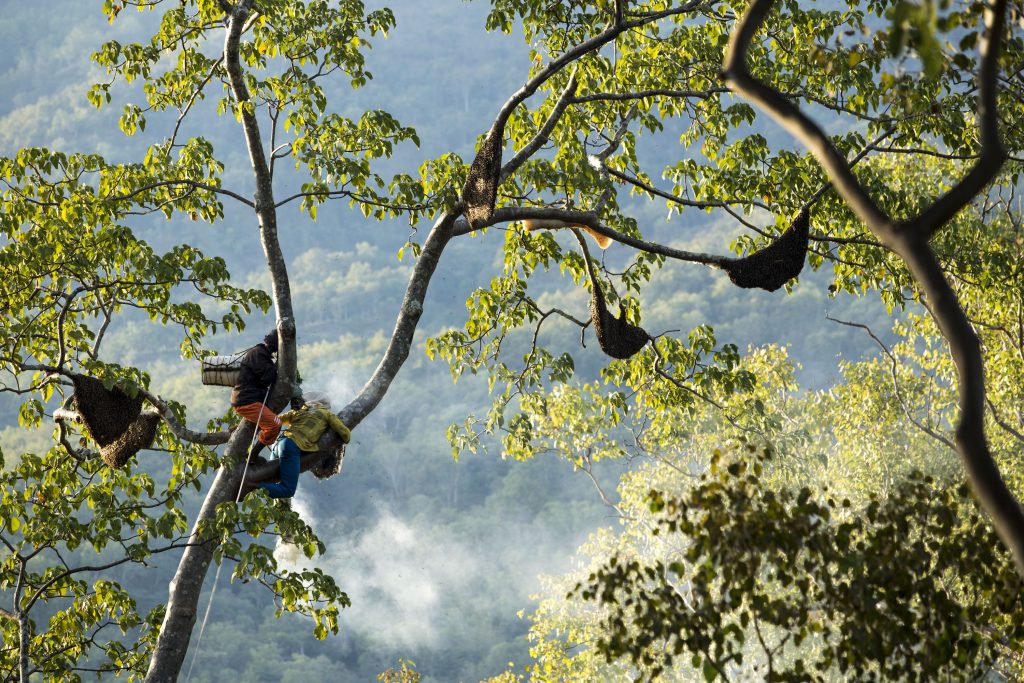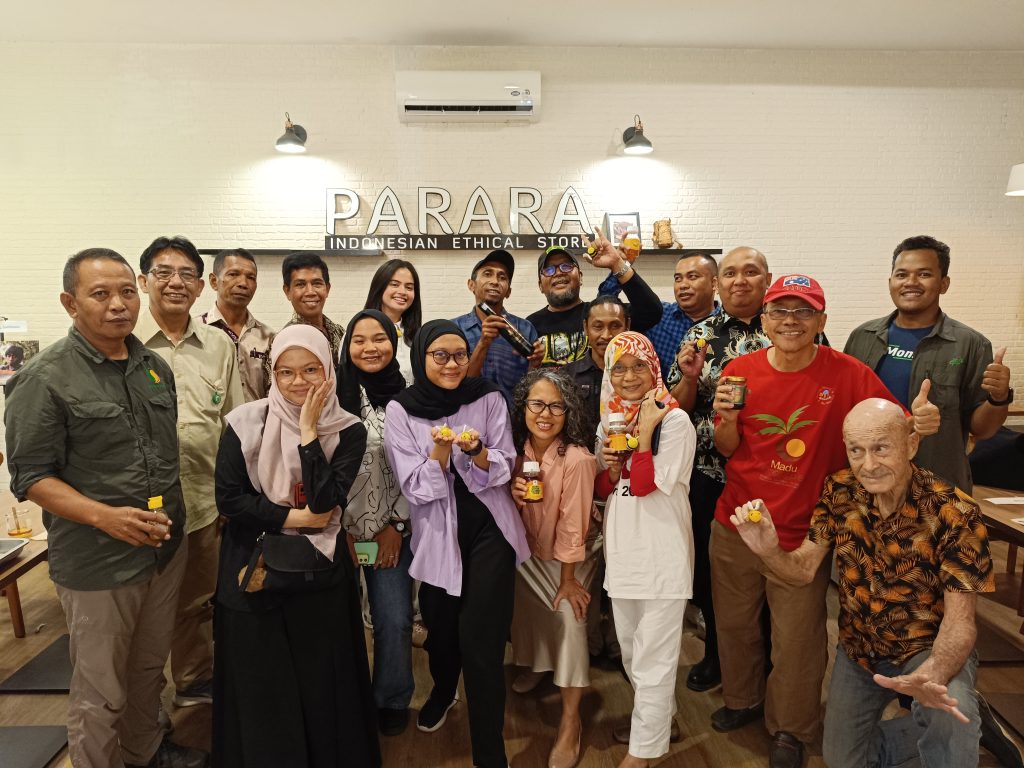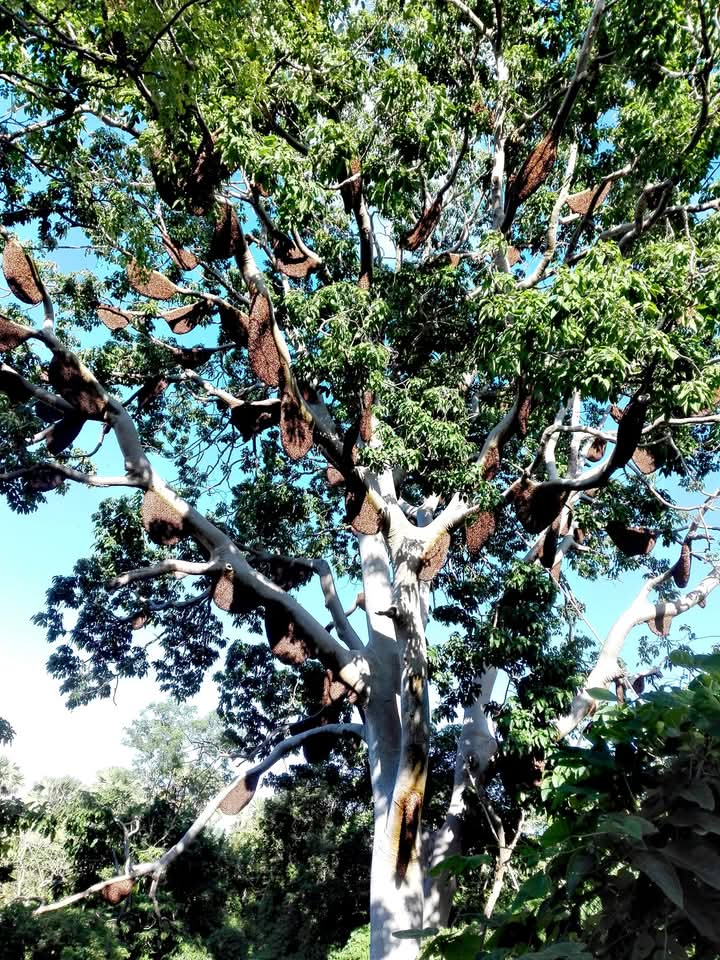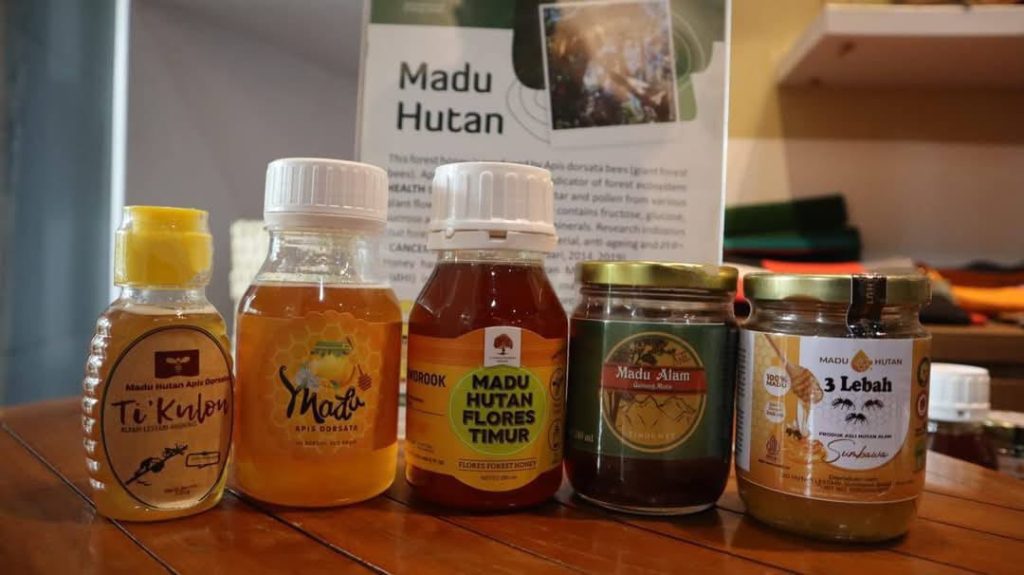Buzzing with Purpose: How Bees and Nature Sustain Us
FAO Theme for World Bee Day 2025, “Bee Inspired by Nature to Nourish us all”

Honey gatherers scale tall trees to harvest honey from Mount Mutis on Timor island (Photo courtesy of CIFOR-ICRAF)
We take honey on our pancakes, in our tea, but we don’t often realize the importance that honey-makers, bees, have in our ecosystem. The Food and Agriculture Organization has stated that “It is thanks to the over 20 000 bee species and various other wild pollinators that we can produce most of the crops we eat. Pollinators are essential to food production, 75% of the world’s crops depend on them[1].”
Honey is also filled with antioxidants and anti-bacterial matter. Asia, Including Indonesia is home to the Asian Giant Bee, the Apis dorsata, that often lives in open hives on forest trees and help to pollinate forest tree species as well. Unfortunately, these bees are being affected by the impacts of climate change, land and forest conversion, among other factors. Because honey is known to boost our immunity, fake honey is produced in volumes across the country. This was particularly the case during the pandemic[2].

Closing program of the World Bee Day event at PARARA Cafe, South Jakarta (Photo courtesy of PARARA)
On May 22, the Forest Honey Network Indonesia (JMHI), an association of 9 members across 7 islands and composed of 1,500 farmers, organized a series of activities to commemorate World Bee Day, to bring attention to the importance of bee pollination and to raise awareness on the existing and potential contribution of honey to human health.

Over 70 forest honey gatherers and processors, scientists, doctors, civil society organizations and the media attended online and offline at the PARARA Indonesian Ethical Store in South Jakarta to participate in the event.
Honey trees… In Larantuka, Eastern Flores, honey trees can have hundreds of hives on them (Photo courtesy of Eman Kelen)
Dr. Rika Raffiudin from IPB University (Institut Pertanian Bogor) shared the pioneering research being done on Apis dorsata species in Indonesian leading to the possible discovery of new bee species and stressing the threat of bee habitat loss and policies being made to protect bee nesting sites. The threat of bee habitat loss was echoed by JMHI members in Riau (Wazar) and Sumbawa (Junaidi) in the expansive conversion of forests to monoculture plantations. Ironically, Dr Eddy Kristianto shared the potential of value-added products from honey such as honey wine and honey kombucha. Converting forests to plantations would negate such potentials.
After the knowledge sharing session, discussion shifted to markets and guarantees. Susilo of PT Talasi, Bali based natural products buyer, shared how the company was expanding and the interest to receive and market forest honeys from additional areas was increasing. The Ministries of Agriculture (KemenTan) and Micro-Small Medium Enterprise (KemenUMKM) also gave inputs with the former sharing new requirements on veterinary registration and the latter expressing interest to collaborate.

Five (5) honeys from 5 islands: Java, Borneo, Flores, Timor and Sumbawa (Photo courtesy of Eman Kelen)
Mr. Rasdi Wangsa presented on the Forest Harvest Collective Mark (FHCM) an emerging community forest label established with farmers and communities to promote and build trust between consumers and buyers of forest products such as honey.
The meeting ended with blind honey taste testing which revealed clear characteristics of the various honeys with participants sharing the complex tastes of forest honeys[1] verses the singular and less complex box hive honeys using imported Italian bees.
For those that attended the JMHI World Bee Day for the first time, it was an eye opener to learn about the importance of forest honey and the urgency to protect the habitat of native bees. For returning participants and JMHI members it was a time to restore energies in common struggles and to strategize to address challenges and capitalize on opportunities. For all, it was definitely a time to “Bee Inspired by Nature to Nourish us All.”
Relevant sources:
[1] https://www.fao.org/pollination/news/news-detail/fao-unveils-the-theme-for-world-bee-day-2025/en#:~:text=In%202025%2C%20under%20the%20theme%20%22Bee%20inspired%20by,restoration%2C%20biodiversity%20conservation%20and%20food%20security%20and%20nutrition.
[2] https://www.tribunnewswiki.com/2020/11/10/pabrik-madu-palsu-di-banten-dibongkar-polisi-produknya-ternyata-bisa-sebabkan-kematian



